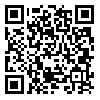Volume 10, Issue 3 (Occupational Medicine Quarterly Journal 2018)
tkj 2018, 10(3): 40-52 |
Back to browse issues page
Download citation:
BibTeX | RIS | EndNote | Medlars | ProCite | Reference Manager | RefWorks
Send citation to:



BibTeX | RIS | EndNote | Medlars | ProCite | Reference Manager | RefWorks
Send citation to:
Sadeghi Naeini H, rafiei S M. Application of QFD method in toothbrush design for the cervical spinal cord injury handicapped (Tetraplegia). tkj 2018; 10 (3) :40-52
URL: http://tkj.ssu.ac.ir/article-1-925-en.html
URL: http://tkj.ssu.ac.ir/article-1-925-en.html
Iran University of Science and Technology , rafiee.mitra@yahoo.com
Abstract: (2996 Views)
Background: The spinal cord trauma is a lost physical performance that causes physical limitations in addition to mental, social and economic disadvantages. The mouth and tooth health is known as one of the related issues to the physical quality of life. Providing the conditions of the more independence for these people in brushing teeth can improve the level of mouth and tooth hygiene. The aim of this study is offering proper patterns in designing toothbrush by emphasizing on the tetraplegia handicapped.
Methods: The results indicate, by considering the motoric limitations of spinal cord injury handicapped (C5-C7) and re-revaluating the dimensions of their palms, it should use stammer instead of grip. Also, by considering the movement rang among handicaps, the rotation of the brush set in 2 directions, brush fixation in 4 degrees and the angle between the brush and handle has been considered.
Results: The results show that the light and sanitary materials should be used in producing. The handle of toothbrush should have a little friction with the user’s hand. The pressure points should be identified and investigated, but a little pressure on hand is necessary due to grip of toothbrush.
Conclusion: It seems that in designing a product, the weight, the facility and the used material must be considered. A little pressure on hand is necessary due to grip of toothbrush.
Methods: The results indicate, by considering the motoric limitations of spinal cord injury handicapped (C5-C7) and re-revaluating the dimensions of their palms, it should use stammer instead of grip. Also, by considering the movement rang among handicaps, the rotation of the brush set in 2 directions, brush fixation in 4 degrees and the angle between the brush and handle has been considered.
Results: The results show that the light and sanitary materials should be used in producing. The handle of toothbrush should have a little friction with the user’s hand. The pressure points should be identified and investigated, but a little pressure on hand is necessary due to grip of toothbrush.
Conclusion: It seems that in designing a product, the weight, the facility and the used material must be considered. A little pressure on hand is necessary due to grip of toothbrush.
Type of Study: Research |
Subject:
Ergonomics
Received: 2018/03/14 | Accepted: 2019/05/4 | Published: 2019/05/4
Received: 2018/03/14 | Accepted: 2019/05/4 | Published: 2019/05/4
Send email to the article author
| Rights and permissions | |
 |
This work is licensed under a Creative Commons Attribution-NonCommercial 4.0 International License. |







